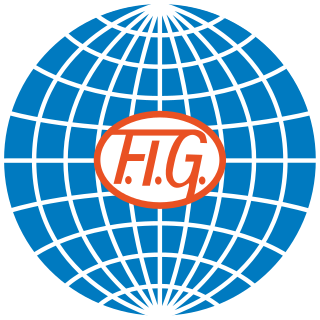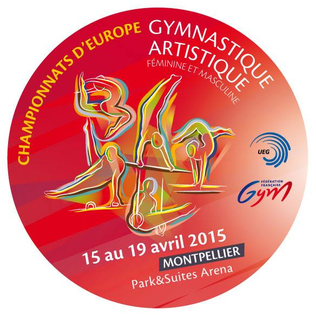
Rhythmic gymnastics is a sport in which gymnasts perform on a floor with an apparatus: hoop, ball, clubs, ribbon and rope. The sport combines elements of gymnastics, dance and calisthenics; gymnasts must be strong, flexible, agile, dexterous and coordinated. Rhythmic gymnastics is governed by the International Gymnastics Federation (FiG), which first recognized it as a sport in 1963. It became an Olympic sport in 1984, with an individual all-around event. The group all-around competition was added to the Olympics in 1996. At the international level, rhythmic gymnastics is a women-only sport. The most prestigious competitions, besides the Olympic Games, are the World Championships, World Games, European Championships, European Games, the World Cup Series and the Grand Prix Series. Gymnasts are judged on their artistry, execution of skills, and difficulty of skills, for which they gain points. They perform leaps, balances, and rotations along with handling the apparatus.

The International Gymnastics Federation is the body governing competition in all disciplines of gymnastics. Its headquarters is in Lausanne, Switzerland. It was founded on 23 July 1881 in Liège, Belgium, making it the world's oldest existing international sports organisation. Originally called the European Federation of Gymnastics, it had three member countries—Belgium, France and the Netherlands—until 1921, when non-European countries were admitted and it received its current name.
The European Women's Gymnastics Championships are an artistic championships for female gymnasts from European countries organised by the European Union of Gymnastics. They are held annually, though rotate between two different formats.
The Rhythmic Gymnastics European Championships are the European championships for the sport of rhythmic gymnastics. They were first held in 1978. The European Championships and the European Junior Championships were united in 1993. Prior to 2006, they were called the European Rhythmic Gymnastics Championships. The competition is organised by the European Union of Gymnastics.
Carmen Rischer is an individual rhythmic gymnast. She was the 1975 World all-around champion. She also won the bronze medal in hoop at the 1980 European Championships in Amsterdam.
Michael Rabušic is a Czech professional footballer who currently plays for Slovan Liberec in the Czech First League.
The 6th Aerobic Gymnastics World Championships were held in Riesa, Germany from 2 to 4 June 2000.
Natalia Ilienko is a Soviet gymnast. Her biggest accomplishment was becoming world floor champion in 1981. She was praised for her highly expressive and fluid performances.
The 7th Aerobic Gymnastics European Championships was held in Bucharest, Romania from 9 to 13 November 2011.

Serhiy Lyulka is a professional Ukrainian football defender who plays for Metalist Kharkiv.
The 26th European Women's Artistic Gymnastics Championships were held from 27 April to 30 April 2006 in Volos, Greece.
Katsiaryna Aliaksandraŭna Halkina is a retired Belarusian individual rhythmic gymnast. She is the 2018 European all-around bronze medalist. She competed at the 2016 Summer Olympics in Rio, and finished 6th in the all-around final.

Nikita Vladimirovich Nagornyy is a Russian artistic gymnast and two-time Olympian, representing Russia in 2016 and ROC in 2020. He was part of the teams who won gold at the 2020 Olympic Games and 2019 World Championships and silver at the 2016 Olympic Games and 2018 World Championships.

Linoy Ashram is a retired Israeli individual rhythmic gymnast. She is the 2020 Olympic All-around Champion, the 2018 World All-around silver medalist, two-time World All-around bronze medalist, the 2020 European All-around champion, and the 2019 European Games All-around silver medalist. She is the third Israeli athlete and first Israeli woman to win an Olympic gold medal in any sport, and the first Israeli rhythmic gymnast to win an Olympic medal. She became the first rhythmic gymnast from outside a post-Soviet republic to win a gold medal at an Olympics where former Soviet states participated.

Tatiana Rudolfovna Druchinina is a Russian former rhythmic gymnast who represented the Soviet Union. She is the 1987 World champion in ribbon and the 1986 World Cup Final all-around silver medalist, Merited Master of Sports in Rhythmic Gymnastics, Honored coach of Russia and figure skating choreographer.

The 6th European Men's and Women's Artistic Gymnastics Individual Championships was held from 15 to 19 April 2015 at the Park&Suites Arena in Montpellier, France. As usual in this format, no team competitions took place.

Sanne Wevers is a Dutch artistic gymnast. She is the 2016 Olympic champion on the balance beam and was the first Dutch female gymnast to become an Olympic champion in an individual event. She is the 2018 and 2023 European champion on the balance beam. She is also the 2015 World and 2021 European silver medalist on the balance beam and the 2015 European bronze medalist on the uneven bars. She was a member of the Dutch team that won the bronze medal at the 2018 and 2023 European Championships.
The Russia women's national artistic gymnastics team represents Russia in FIG international competitions. Additionally, they have competed as the Russian Olympic Committee (ROC) and the Russian Gymnastics Federation (RGF) due to the World Anti-Doping Agency imposing sanctions on Russia in the aftermath of the doping scandal. While competing under the Russian Olympic Committee designation, they won the gold medal at the 2020 Olympic Games. They also won the team gold medal at the 2010 World Championships and at the inaugural Junior World Championships in 2019.
The European Men's and Women's Artistic Gymnastics Individual Championships are an artistic gymnastics championships for male and female gymnasts from European countries organised by the European Union of Gymnastics. They were first held in 2005 and have been held biennially since then in odd-numbered years. These championships occur in years between the European Men's Artistic Gymnastics Championships and the European Women's Artistic Gymnastics Championships, which have been held in even-numbered years since 1990.
The Russia men's national artistic gymnastics team represents Russia in FIG international competitions. Additionally they have competed as the Russian Olympic Committee (ROC) and the Russian Gymnastics Federation (RGF) due to the World Anti-Doping Agency banning athletes from representing Russia in international competition.







